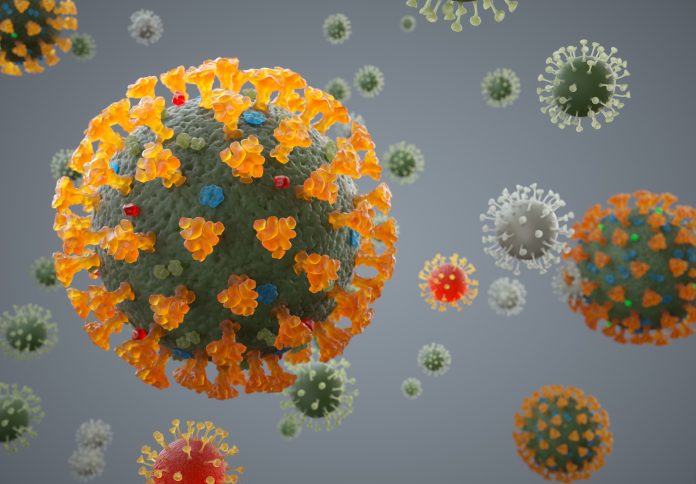
INOVIO, the developer of a DNA vaccine for COVID-19—a onetime front-running candidate that has seen as many setbacks as successes in recent months—acknowledged yesterday that its Phase II/III trial of INO-4800 had been placed by the FDA on a partial clinical hold pending responses by the company to additional questions from the agency about the trial and its CELLECTRA 2000 delivery device to be used in the trial.
INOVIO did not detail the FDA’s questions or areas of concern, but did say that it was “actively working to address the FDA’s questions and plans to respond in October,” after which the FDA will have up to 30 days to notify INOVIO whether the trial may proceed.
INOVIO said the partial hold—enrollment of new patients is suspended, though existing ones can continue treatment—was not due to any adverse events related to INOVIO’s ongoing expanded Phase I trial of INO-4800 (NCT04336410), which is not impacted by the FDA’s notification. The Phase II/III trial will resume upon resolution of the partial clinical hold and the receipt of external funding to conduct the trial, INOVIO added.
Investors responded with a stock selloff that sent the price of the company’s stock down 31% from Friday’s closing price of $16.94—a 28% drop to $12.14 yesterday, then down another nearly 7% today, to $11.31 at the close of trading.
Two analysts—Jonathan Aschoff, Ph.D., managing director, senior research analyst covering healthcare and biotech stocks for ROTH Capital Partners and Charles C. Duncan, managing director and senior biotechnology research analyst with Cantor Fitzgerald—cut their price targets on the stock. Aschoff lowered his target price from $11 to $8 a share and kept his firm’s “Sell” rating, while Duncan downgraded INOVIO shares from “overweight” to “neutral” and slashed his firm’s price target from $31 to $12 a share.
INO-4800 is a DNA vaccine targeting the major surface antigen Spike protein of SARS-CoV-2. INO-4800 is ranked among “Definitely Maybe” candidates on GEN’s updated COVID-19 DRUG & VACCINE CANDIDATE TRACKER, which tracks more than 300 candidates being developed against SARS-CoV-2.
Highlighted on “60 Minutes”
Inovio was among developers of COVID-19 drug and vaccine candidates highlighted March 22 on CBS’ “60 Minutes,” along with Moderna, the developer of messenger RNA-based vaccine mRNA-1273, considered among leading COVID-19 vaccines. Three months later on June 23, INOVIO received $71 million from the U.S. Department of Defense (DoD) to support large-scale manufacturing of the company’s CELLECTRA 3PSP smart device and procurement of CELLECTRA 2000 devices, which are designed to deliver INO-4800 directly into the skin.
The DoD contract, from the Joint Program Executive Office for Chemical, Biological, Radiological and Nuclear Defense Enabling Biotechnologies (JPEO-CBRND-EB) through funding provided by the Defense Health Program, was intended to build upon two separate prior $5 million grants from the Bill & Melinda Gates Foundation and the Coalition for Epidemic Preparedness Innovations (CEPI), to accelerate testing of CELLECTRA 3PSP. Initial development of CELLECTRA 3PSP began in 2019 with $8.1 million from the medical arm of the U.S. Defense Threat Reduction Agency’s Medical CBRN Defense Consortium.
However, also in June, INOVIO filed a lawsuit against VGXI and its parent company, GeneOne Life Science, in the Court of Common Pleas of Montgomery County, PA, seeking unspecified monetary damages against the contract manufacturing organization. INOVIO accused VGXI and GeneOne of breaching a contract, then terminating the agreement and treating it as expired after refusing to transfer manufacturing methods, using VGXI’s technology, to two other contract manufacturers, Ology Bioservices and Richter-Helm BioLogics.
INOVIO said it began pursuing the transfer after it was told by VGXI that it did not have the capacity to manufacture the company’s full order of DNA plasmids on the requested timeline, nor would it be able to manufacture plasmids for the commercial sale of INO-4800. INOVIO said in a regulatory filing that it “has a goal of producing one million doses of INO-4800 by the end of 2020, with its existing capacity and contract resources, for further clinical trials or emergency use.”
Ology and Richter-Helm remain among contract manufacturers working with INOVIO to manufacture INO-4800 on a commercial scale, along with Thermo Fisher Scientific. INOVIO said it continues to seek additional external funding and partnerships to further scale up manufacturing capacities.
Positive interim phase I results
In June, INOVIO’s DNA vaccine for COVID-19 generated positive interim Phase I results. According to INOVIO, preliminary analyses of its Phase I results showed that 34 out of 36 trial participants completing the study (94%) up to that point “demonstrated overall immune responses” six weeks after receiving two doses of INO-4800 in the study. Participants were enrolled into 1.0 mg or 2.0 mg dose cohorts, with each participant receiving two doses of INO-4800 four weeks apart.
Investors, however, sent the price of INOVIO stock down 15%, apparently disappointed that the company did not specify the percentage of participants who produced neutralizing antibodies to SARS-CoV-2. Aschoff downgraded ROTH’s rating from hold to sell, while Naureen Quibria, PhD, of Maxim Group downgraded the company’s rating from buy to hold.
The Phase I trial is a 120-participant, open-label study designed to evaluate the safety, tolerability and immunological profile of INO-4800 administered by intradermal injection followed by electroporation using the CELLECTRA 2000 device in healthy adult volunteers. The trial initially enrolled 40 participants, but was expanded to add older participants in additional cohorts.
Also in June, the International Vaccine Institute (IVI) and Seoul National University Hospital announced a partnership to start a Phase I/II trial (NCT04447781) of INO-4800. The two-stage trial of INO-4800—the first clinical study of COVID-19 vaccine approved in Korea—is designed to assess the safety, tolerability, and immunogenicity of the candidate vaccine in 40 healthy adults aged 19–50 years, and an additional 120 people aged 19–64 years. The trial is funded by CEPI through INOVIO and is supported by the Korea Center for Disease Control and Prevention/Korea National Institute of Health.













